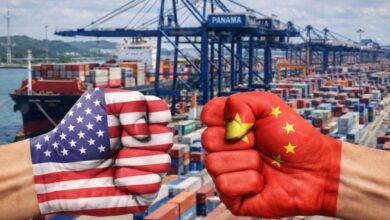Nicaragua Expands Trade Horizons as It Officially Starts Free-Trade Agreement with China

Nicaragua and China have taken a momentous stride toward strengthening their trade relations in an era marked by global economic integration. The recently ratified free trade agreement heralds a new dawn for Nicaragua, offering the Central American nation unencumbered access to the vast expanse of the Asian market, effectively eliminating tariffs on a range of goods. This momentous pact is poised to reshape Nicaragua’s economic destiny.
A Culinary and Economic Triumph
Under the provisions of this groundbreaking agreement, Nicaragua is set to export an array of products that span the culinary delights of meat and seafood, including fish, shrimp, lobsters, and sea cucumber. Additionally, staples like sugar, peanuts, and rum will find their way into the hearts and homes of Chinese consumers. Beyond gastronomy, the accord encompasses non-food items like leather, charcoal, wood, and automobile parts. It is a comprehensive trade arrangement that promises to invigorate Nicaragua’s economy and foster a mutually beneficial relationship with China.
The agreement has strategically excluded certain Chinese goods that could challenge Nicaragua’s key industries. Sensitive sectors like meat and its by-products, coffee, rice, and sugar, have been safeguarded from external competition. This measured approach aims to balance the scales and protect the vital pillars of Nicaragua’s economy while capitalizing on the immense opportunities the Chinese market presents.
President Ortega Hails Agreement as a Diplomatic Milestone
President Daniel Ortega, a stalwart leader who has presided over Nicaragua for the past 17 years, celebrated the accord as “the best Christmas present” during his address on December 22nd. Amidst a backdrop of political protests and dissent, President Ortega emphasized the importance of this agreement in fostering cooperation rather than confrontation. “Our brothers are here to shake hands, not to attack us,” he declared, urging the international community to embrace a spirit of diplomacy and peace. His sentiments underscore the significance of this trade pact as a diplomatic milestone in the region.
Nicaragua’s pivot toward China has been a strategic maneuver, accompanied by the termination of diplomatic relations with Taiwan at the close of 2021. This realignment has been increasingly evident in Nicaragua’s foreign policy as it seeks to broaden its economic horizons and strengthen ties with the Asian superpower. The free trade agreement, signed in a virtual meeting on October 31st, was pivotal in solidifying this burgeoning relationship. Although few additional details have been disclosed to the public since the signing, the agreement’s implications are monumental.
Economic Transformation Through Far-reaching Export Accord
With the implementation of this far-reaching accord, Nicaragua’s export prowess is set to soar to new heights. The country’s agricultural sector, boasting a rich array of produce, will play a pivotal role in this economic transformation. Including meat and seafood in the export portfolio opens avenues for Nicaraguan farmers and fishermen to access the burgeoning Chinese market. Furthermore, commodities like sugar, peanuts, and rum, deeply ingrained in Nicaragua’s cultural and economic fabric, will find eager consumers on the other side of the Pacific.
The non-food items encompassed by the agreement, including leather, charcoal, wood, and automobile parts, also hold significant promise. Nicaragua’s craftsmanship and manufacturing capabilities will flourish under this newfound opportunity, offering high-quality products to Chinese consumers. This diversification of exports will not only enhance Nicaragua’s economic resilience and promote bilateral trade relations with China.
Commitment to Sustainable Growth Through Selective Exclusions
By prudently excluding certain Chinese goods that could jeopardize domestic industries, Nicaragua has demonstrated its commitment to nurturing sustainable economic growth. Protecting the meat, coffee, rice, and sugar industries ensures local producers continue thriving without undue competition. This measured approach safeguards Nicaragua’s agricultural heritage while capitalizing on China’s vast consumer base.
Also read: Inflation, Rates and More Investment, Challenges for Latin American Economies for 2024
Nicaragua’s free trade agreement with China is nothing short of a game-changer for the Central American nation. It signifies a transformative shift in economic strategy, providing access to the world’s largest consumer market while preserving the integrity of critical domestic industries.
President Ortega’s vision of cooperation and diplomacy underscores the broader significance of this agreement in a world seeking stability and prosperity through trade. As the details of this historic pact unfold, Nicaragua’s journey toward economic revitalization and global prominence enters a new and promising chapter.




